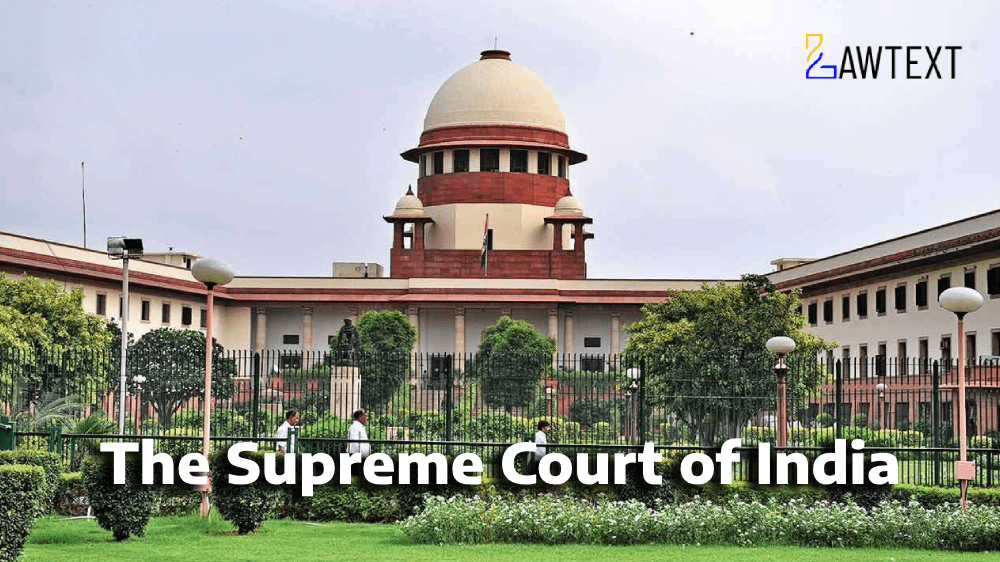CASE NOTE & SUMMARY
The appellant challenged a seniority list from the Engine Factory, Avadi, which placed him below other employees due to delays in completing probation and passing a trade test. He argued that seniority should be determined by the merit list at the time of his initial appointment in 1996, where he ranked higher than the respondents. However, the respondents completed their probation earlier, leading to earlier promotions and higher positions in the seniority list.
The court examined the applicability of various government orders, including a 2002 directive that established seniority based on the date of promotion to skilled grades. The appellant also relied on a 2015 government order, which restored seniority to the date of initial appointment, but the court ruled that this order could not be applied retrospectively. As a result, the appellant’s claim was dismissed, and the seniority list based on the 2002 regulations was upheld.
1. Introduction and Appeal Basis (Paras 1-4)
- The appellant and respondents were initially appointed to semi-skilled positions in 1996.
- A 2006 draft seniority list placed the appellant below the respondents, despite his higher ranking in the initial merit list.
- The appellant argued that his seniority should be based on his 1996 merit ranking, but the respondents completed their probation earlier and were promoted first.
2. Contesting the Seniority List (Paras 5-9)
- The appellant filed a representation challenging the 2006 seniority list, which was rejected.
- He then approached the Central Administrative Tribunal (CAT), which ruled in his favor in 2009. However, the private respondents challenged this decision in the Madras High Court, which reversed the CAT ruling in 2011, restoring their seniority.
3. Appellant’s Arguments (Paras 10-16)
- The appellant contended that seniority should be based on the date of initial appointment and not on promotion, citing various court judgments and government orders.
- He argued that the probation period should not affect his seniority and that the relevant government orders supported his claim.
4. Respondents’ Arguments (Paras 17-21)
- The respondents countered that promotions and seniority should be based on passing a trade test and completing probation, as outlined in SRO No. 185 of 1994.
- They emphasized that the appellant’s delay in passing the test justified his lower seniority.
5. Examination of Rules and Government Orders (Paras 22-40)
- The court reviewed the 2002 government order, which established that seniority would be counted from the date of promotion to the skilled grade.
- The appellant also referenced a 2015 government order that restored seniority to the initial appointment date, but the court ruled that this could not be applied retrospectively.
6. Retrospective Application of the 2015 Order (Paras 41-49)
- The court determined that the 2015 government order could not disturb the seniority of employees promoted under the earlier 2002 rules.
- Allowing retrospective changes would cause administrative complications and injustice to other employees.
7. Final Decision (Paras 50-57)
- The court upheld the High Court's ruling, dismissing the appellant’s appeal.
- The seniority list based on the 2002 government order was deemed valid, and the retrospective application of the 2015 order was rejected.
Acts and Sections Discussed:
- SRO No. 185 of 1994: Established guidelines for determining seniority based on promotion.
- Government Order (GO) dated 24th December 2002: Clarified that seniority would be determined by the date of promotion to the skilled grade, not the initial appointment.
- Office Memorandum dated 4th November 1992: Provided that seniority should be determined by the initial appointment date.
- Government Order (GO) dated 4th August 2015: Changed the seniority rules to link it back to the initial appointment date but could not be applied retrospectively.
Ratio Decidendi:
The core legal principle from this judgment is that seniority for semi-skilled and skilled employees in industrial establishments, including government factories, should be determined by the date of promotion, as per SRO No. 185 of 1994 and the 2002 government order. Retrospective application of later government orders is not permissible if it disrupts settled seniority, rank, or vested rights.
Subjects:
Seniority determination, government employees, probation, promotions, trade tests, government orders, retrospective application.
Seniority disputes, promotion delays, industrial establishments, skilled workers, government rules, Supreme Court, retrospective orders, probation periods.
Citation: 2024 LawText (SC) (9) 301
Case Number: CIVIL APPEAL NO(S). 8617 OF 2013 WITH CIVIL APPEAL NO(S). 010944-010946 OF 2024 (Arising out of SLP(Civil) No(s). 023121-023123 of 2024) CC No. 3704-3706/2012
Date of Decision: 2024-09-30
Case Title: V. VINCENT VELANKANNI VERSUS THE UNION OF INDIA AND OTHERS
Before Judge: (SANDEEP MEHTA J. , R. MAHADEVAN J. )
Appellant: V. VINCENT VELANKANNI
Respondent: THE UNION OF INDIA AND OTHERS

